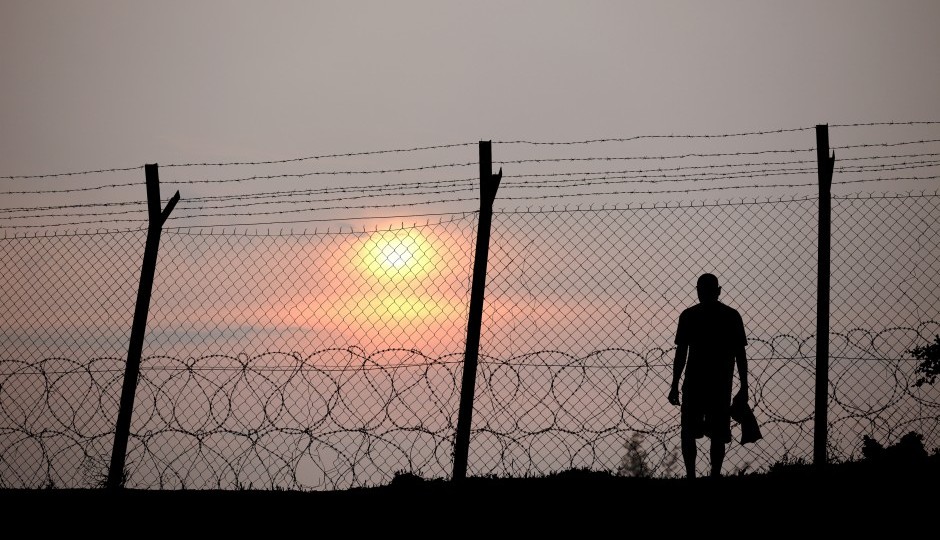Insider: the Practical Case for Helping Ex-Cons
(Editor’s note: This is an opinion column from a Citified insider.)
If you’ve never been to prison, it can be easy to dismiss the plight of those who have. You might think, I’ve never committed a crime, I’m a law-abiding citizen. its not my problem, it doesn’t affect me.
Well you’re wrong. It does.
Every year, 40,000 formerly incarcerated individuals return to Philadelphia. That’s over 100 people a day. These are friends, families, co-workers and people of the community who are looking to resume their lives and become productive members of society. By close of business today, any hope of that could be gone. The toxic combination of unemployment, hopelessness, homelessness and desperation they face could find its way to your doorstep.
Scheduled for a vote today on the PA House floor for second consideration is PA HB 222. In plain language, this bill amends the Public Welfare Code to prohibit individuals convicted of drug distribution from qualifying for public benefits.
If enacted, it’d be back to the future.
Pennsylvania lifted an older lifetime ban on people with felony drug convictions in 2004, making it possible for people in recovery to receive SNAP (food stamps) and other public benefits. The thinking then, and now, is that benefits eligibility for former drug felons helps them to rebuild their lives and legally support themselves and their families. It’s good policy, particularly for women — whose distribution convictions often were a result of physical or sexual abuse — were disproportionately hurt by the pre-2004 benefits ban.
HB 222 would reimpose the lifetime ban. Anyone with felony drug convictions would be unable to get public benefits for the rest of their lives.
Forever.
But hey, don’t do the crime if you can’t do the time right?
Wrong.
Serving your time means you paid your debt to society and generally should not be punished for the rest of your life.
In one of the poorest big cities in America, where minimum wage jobs are often not enough to sustain a family, denying people much needed public assistance benefits to support their families would be devastating. It isn’t hard to connect the dots to desperate people taking desperate actions to make ends meet.
I spoke to Bill Cobb, Founder of Redeemed whose mission is to eliminate systemic discrimination practices against people living with arrest and or conviction records. He commented:
“While this bill looks to save taxpayers money it also seeks to extract an additional pound of flesh from people with people drug arrests. In reality, it won’t serve taxpayers money at all. When people who need assistance don’t get it, it pushes them to commit crimes of poverty. This has a profound negative impact on public safety, local economies and overall quality of life for all Pennsylvanians.”
Urban crime is often the long result of lack of options — limited public assistance, a failing education system and a lack of jobs — which mix to create an unsafe environment. Denying public benefits to those that need them most isn’t the solution. Many ex-offenders return home with the clothing on their backs and not much else. They will be immediately thrust into a situation that isn’t conducive to making positive choices.
Karin Annerherd-Harris, Associate Director Alliance of Community Service Providers added “this is a problem for everyone in society, woman, man, rich or poor. It’s not limited to the individuals receiving (or not receiving) benefits. When they can’t eat they will turn to crimes, and the crimes will eventually reach your neighborhood (not to mention how much it costs to keep them in prison). As much as people like to think we live in bubbles, we don’t. We should spend tax dollars on making society better, instead of spending more tax dollars just to “punish people for the sake of punishing them.”
It isn’t just the “ex-offender” advocates that are against HB 222. PA State Rep Cherelle Parker commented “HB 222 permits the revictimization of women who have suffered mental, physical, and emotional abuse. The Legislature should be advancing policy that empowers our residents, no matter their circumstances, instead of contributing to their instability.”
If this is an attempt to save taxpayers money by denying public assistance, it is a short-sighted approach. It costs more to re-incarcerate ex offenders than it does to train and employ them.
Fortunately, there’s something you can do right now. HB 222’s primary sponsor is State Representative Mike Regan, you can reach him at mregan@pahousegop.com or call his office at 717-783-8783. Let him know we need to treat ex-offenders with special protections, not create additional roadblocks for their reentry.
We live in a society where we can no longer solve for problems on one side of the fence. There has to be a measure of compassion and understanding for those who most need help. If we don’t, that fence won’t exist and the problems won’t just be “their” problems. They’ll be yours.
Mustafa Rashed is the President & CEO of Bellevue Strategies, a government relations, advocacy and consulting firm. He is Chairman of Friends of Doug Oliver, PAC, and he was the campaign manager of Oliver’s recent mayoral run.
